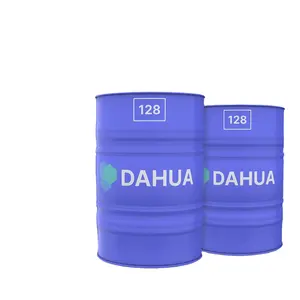About products and suppliers
Alibaba.com cung cấp một bộ sưu tập tuyệt vời với chất lượng bền bỉ, mạnh mẽ và tối ưu. lớp phủ epoxy chống ăn mòn cho các mục đích sử dụng khác nhau trong nhiều lĩnh vực thương mại. Những chất lượng hiệu quả và cứng nhắc. lớp phủ epoxy chống ăn mòn được làm từ những vật liệu chất lượng tốt nhất để có hiệu quả cao hơn và liên kết có khả năng giữ mọi thứ với nhau một cách chính xác. Những cái này. lớp phủ epoxy chống ăn mòn thân thiện với người dùng và có thời hạn sử dụng lâu hơn. Bạn có thể đặt mua những sản phẩm thành thạo này từ những nhà bán buôn và nhà cung cấp hàng đầu trên trang web, những người chỉ được kiểm tra để cung cấp những sản phẩm chất lượng.
Tuyệt vời và mạnh mẽ. lớp phủ epoxy chống ăn mòn có sẵn trên trang web được làm từ các vật liệu chất lượng cao như silicone, polysiloxan, chất độn, chất liên kết chéo, chất kết dính và nhiều vật liệu hiệu quả khác giúp các sản phẩm này an toàn nhưng rất mạnh mẽ. Các danh mục riêng biệt của. lớp phủ epoxy chống ăn mòn được đưa lên bán ở dạng bột nhão mịn và là những sản phẩm chống chịu thời tiết chất lượng cao. Bạn có thể sử dụng chúng. lớp phủ epoxy chống ăn mòn trong mọi điều kiện do khả năng chống chịu thời tiết cao, chống tia cực tím và chống thủy phân.
Alibaba.com cung cấp một số độc đáo. lớp phủ epoxy chống ăn mòn có sẵn ở các kích thước gói, tính nhất quán, hiệu quả và thành phần riêng biệt để đáp ứng các yêu cầu riêng của bạn. Những người thành thạo. lớp phủ epoxy chống ăn mòn không thấm nước, có khả năng chịu nhiệt độ tốt hơn, khả năng chuyển động cao hơn và ngăn ngừa ăn mòn kim loại. Bạn có thể sử dụng chúng. lớp phủ epoxy chống ăn mòn trong ngành sản xuất, ngành may mặc, ngành xây dựng, cho gạch ốp lát, gốm sứ, v.v., tùy theo yêu cầu của bạn.
Alibaba.com có thể giúp bạn tìm thấy những sản phẩm hoàn hảo bằng cách cung cấp. lớp phủ epoxy chống ăn mòn phù hợp với ngân sách của bạn. Các sản phẩm này được chứng nhận ISO và có sẵn dưới dạng đơn đặt hàng OEM. Bạn cũng có thể đi đóng gói theo yêu cầu khi đặt hàng với số lượng lớn.























